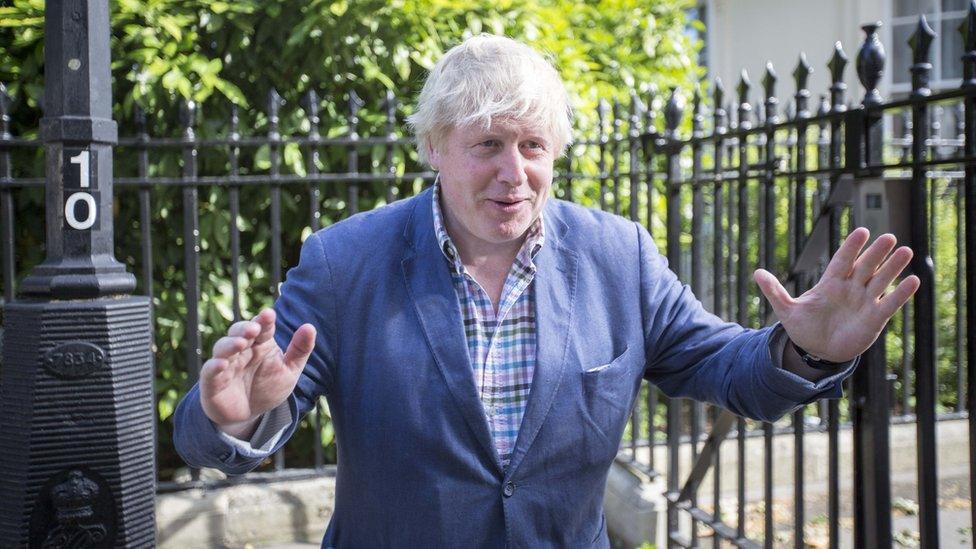General election 2017: Fallon defends DUP government 'deal'
- Published
Sir Michael Fallon said the Tories did not have to agree with the DUP's views on social issues
A Conservative deal with the Democratic Unionist Party would only apply to "big issues" like the economy and security, the defence secretary has said.
Sir Michael Fallon said the parties were seeking an agreement - which would not be a formal coalition - to keep a minority Tory government in power.
Speaking to Andrew Marr, Sir Michael also distanced himself from the DUP's conservative stance on social issues.
"It doesn't mean we now agree with all their views," he said.
DUP leader Arlene Foster is expected to hold talks in Downing Street on Tuesday with Prime Minister Theresa May.
Mrs May is under pressure after losing the Tories' Commons majority in Thursday's general election.
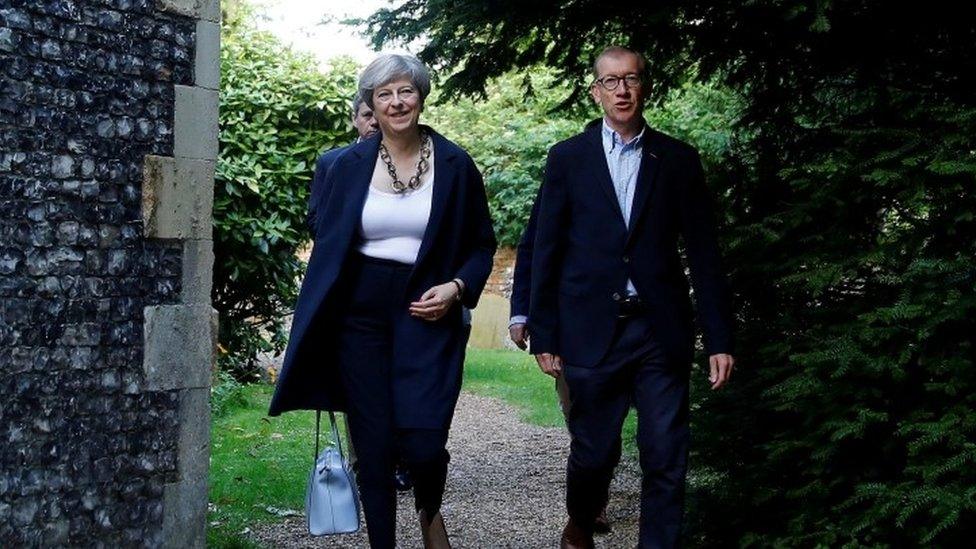
Theresa May and her husband attended church, as arguments over a deal with the DUP continue
In the latest fallout from the result, which confounded pollsters and left the UK with a hung Parliament:
An influential Conservative MP predicted Tory manifesto policies including on grammar schools would have to be "slimmed down"
Mrs May was accused of putting her party interest above the Northern Ireland peace process with the planned DUP alliance
Jeremy Corbyn said he could still be PM and would try to amend the Queen's Speech
Former Tory Chancellor George Osborne described Mrs May as a "dead woman walking"
Mr Fallon said Mrs May would have to adopt a more "collective" approach to making decisions
Pro-EU Conservatives predicted the outcome of the general election would change the government's approach to Brexit
Overnight there was confusion over the status of an agreement with the DUP, with Downing Street initially saying the principles had been agreed before issuing another statement saying negotiations continued.
The DUP were as "surprised as anybody" by Downing Street's original announcement, the BBC understands.
"It would be very, very surprising if something as important and complex as this was stitched together in a single day of talks in Belfast," Sir Michael said.
Ms Foster told Sky News "discussions continue" about forming a "national government" to bring stability to the nation.
George Osborne: "Theresa May is a dead woman walking, it's just how long she's going to remain on death row"
She said the parties had made "good progress" so far.
The arrangement being sought is known as "confidence and supply", under which the Tories could rely on DUP support in key votes like Budgets and no-confidence motions.
Sir Michael did not reveal what the DUP had been offered in return, but said the "outline proposal" would be published once a deal had been agreed.
The DUP, which has 10 MPs after the election, has garnered a reputation for its strong and controversial views on a number of social issues.
It opposes same-sex marriage and is anti-abortion - with abortion remaining illegal in Northern Ireland, except in specific medical cases.
Some Conservatives raised concerns about an alliance between the parties, with Scottish leader Ruth Davidson seeking assurances over LGBT rights from Mrs May.
"Just because they're going to support us on the big economic issues, it doesn't mean we agree with all their views - we don't," Sir Michael said.
He also said power-sharing talks between Sinn Fein and the DUP in Northern Ireland would be unaffected by the Conservatives' reliance on the unionist party at Westminster.
"We have already had a friendship with the DUP that goes back many years," he said.

What do the DUP want from a deal?
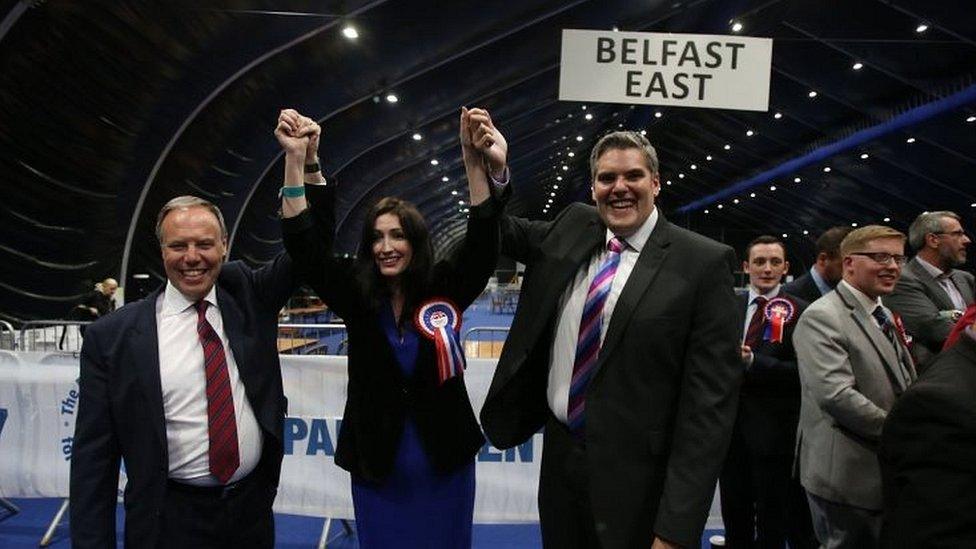
By John Campbell, BBC Belfast Reporter
Political sources in Belfast say the DUP manifesto and a document they published in 2015 give a guide to what they will want from any deal.
The 2015 Northern Ireland Plan, external was specifically designed for a hung parliament situation.
At that time the DUP hoped to be the kingmakers for either Labour or the Conservatives. At its heart is a financial package: real terms increases in health and education spending over five years, more money for infrastructure and help with transforming public services.
Those could all come with hefty price tags.
There are other more specific measures in the 2017 manifesto, external such as the abolition of air passenger duty (APD) in Northern Ireland.
One senior source also put it to me, with some hyperbole, that the DUP could "kill austerity".
By that they meant that DUP manifesto opposes the ending of the "triple lock" on state pensions and the means testing of winter fuel allowance. Whether they want to see the roll-back of benefit cuts announced, but not yet implemented remains to be seen.
On Brexit the DUP does not like the idea that "no deal is better than a bad deal".
Crashing out of the EU with no transitional arrangements could be hugely damaging to Northern Ireland's trade with the Republic of Ireland. The party also wants to kill off the idea of a 'special status' which would see Northern Ireland more closely aligned with the Republic of Ireland after Brexit.

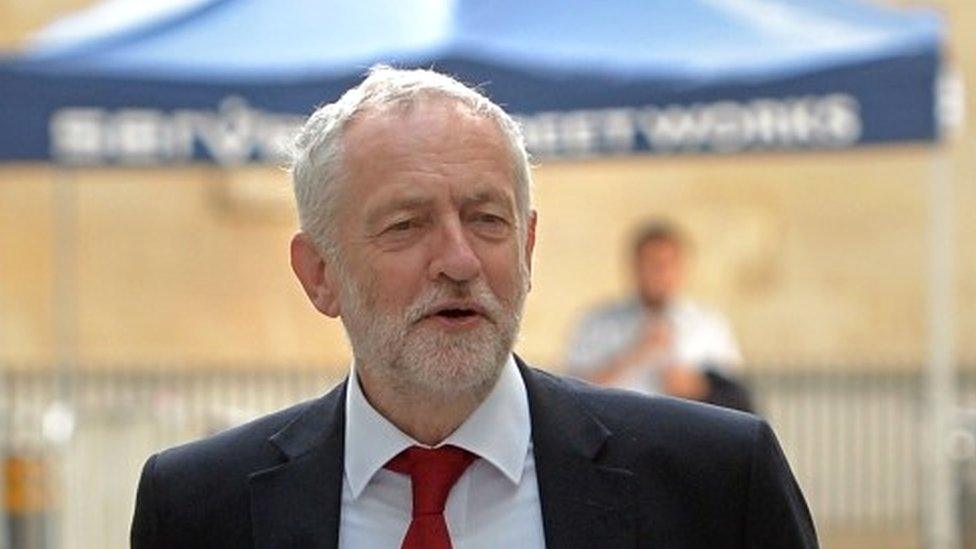
Jeremy Corbyn is preparing an amendment to the Queen's Speech in which he will set out his own programme for government
But Sinn Fein, which does not take its seats at Westminster, said the DUP had "betrayed the interests of the people" and the new arrangement would "end in tears".
Labour's former shadow home secretary Yvette Cooper said the planned deal was "dodgy" and "unsustainable" - and also "irresponsible for the Northern Ireland peace process".
"The idea that the British government could be taking sides, having been the guarantor of the Good Friday Agreement and the subsequent peace agreements is really troubling," she told Sky News.
The new Parliamentary arithmetic means the Conservatives will need other parties' backing to get any new laws passed - and Graham Brady, chairman of the influential 1922 Committee of backbench Tory MPs, predicted this would change their party's policy plans.
"There's no point in sailing ahead with items that were in our manifesto which we won't get through Parliament," he said.
Mr Brady said there was "no doubt" the Queen's Speech - due on 19 June - would be "slimmed down", including plans for an expansion of grammar schools in England.
These could be reduced to a "modest pilot" in certain areas, he predicted.


- Published11 June 2017
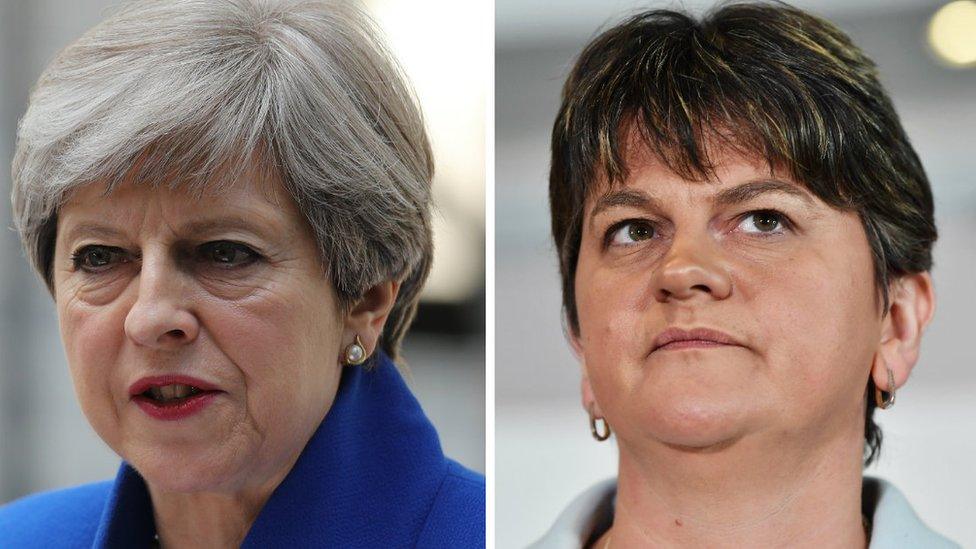
- Published9 June 2017
- Published9 June 2017
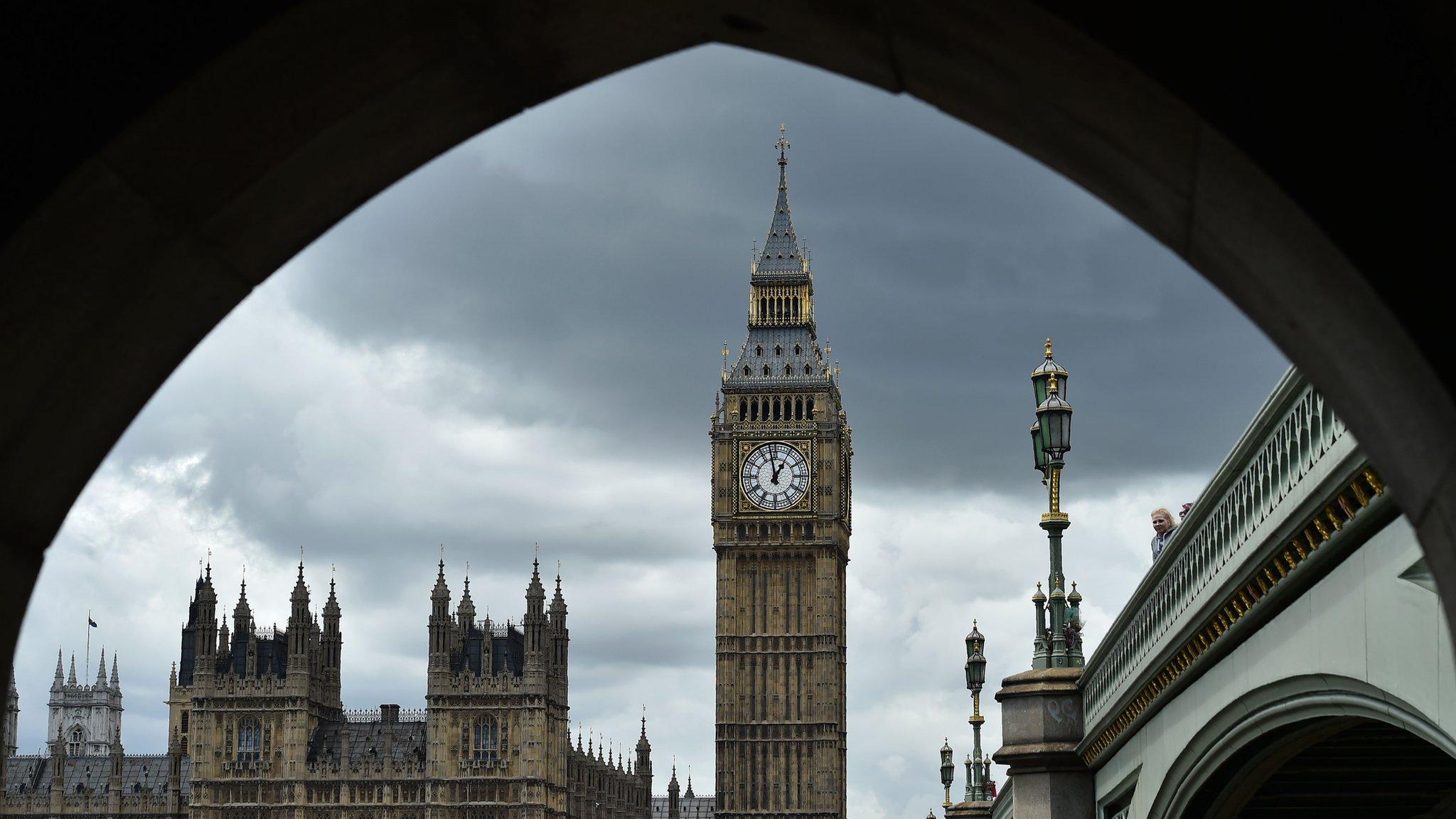
- Published11 June 2017
